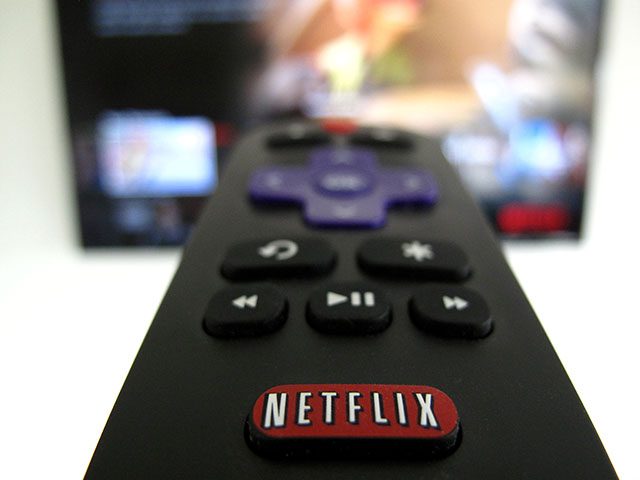
Veteran filmmaker Erik Matti got schooled online over the weekend after he criticized the popularity of Korean dramas on the streaming platform Netflix.
Last April 14, Matti tweeted that the popularity of Korean dramas or K-dramas showed the doom of the film and television industry in the Philippines.
He further criticized these shows as “all love in the midst of this pandemic.”
“Faux cinderella stories with belofied actors whiter than white. And it’s all about love in the midst of this pandemic,” he said.
The daily top ten most viewed on #Netflix shows us how our movies and tv are doomed in the future. K-drama galore. Faux cinderella stories with belofied actors whiter than white. And it’s all about love in the midst of this pandemic.
— Erik Matti (@ErikMatti) April 14, 2020
As of April 20, majority of the top ten on Netflix Philippines were K-dramas namely: “The King: Eternal Monarch,” “Hi Bye, Mama!,” “Crash Landing on You,” “Itaewon Class,” “Fight for My Way,” and “What’s Wrong with Secretary Kim.”
Fans of these South Korean television series eventually spoke up against Matti’s view, pointing out that not all Korean dramas tell love stories.
Some Filipinos, including local social media personality and entertainment host Kring Kim, took the time to suggest a list of Korean shows that are either socio-political, philosophical or cultural in nature.
“The actors there, too aren’t young and I believe most of them didn’t get cosmetic surgery (just naturally good-looking & have good skin). You might be surprised how well-made those are and might be an inspiration for you, too,” she said.
Hi sir, may I suggest the following dramas (weren’t shown on Netflix realtime so they weren’t hyped but I believe they’re there). No love stories, just pure good storytelling ang acting.
– SKY CASTLE
– MISAENG
– REPLY 1988 (might have a bit love story but not the focus)
– SIGNAL— KRING KIM
(@KringKim) April 17, 2020
Another online user said that downgrading foreign films or series just because they are popularity than local ones is wrong.
“There are many undiscovered Filipino films that we tend to overlook which has great cinematography and plots. But to downgrade a film genre just because it is doing well, is racist and xenophobic,” the user said.
With all due respect, sir. There is no need to belittle the craft of other countries. What you and they are doing are media art, though different in attack. To call them ‘faux and belofied’ is low. We’re better than this. Let’s respect all kinds of art.
— buttercup⁷ misses bts
(@moonrainksj) April 17, 2020
Other Filipinos, meanwhile, used their wit to compare the quality of the visuals on South Korean series to that of some teleseryes which were also poked fun at in the past.
direk erik matti: "k-drama galore faux cinderella stories with belofied actors whiter than white and it’s all about love in the midst of this pandemic"ghost in kdrama ghost in teleserye
Posted by Ranein Sy on Saturday, April 18, 2020
Twitter users also cited the difference between Korean and Filipino television series in terms of storylines and themes.
If meron po, better. But my point here is that they do intensive research as much as possible to deliver facts. Wala pong clichéd amnesia, palitan ng anak, and unfortunately, seryes that are supposed to be for family that ends up being bloody. Thank you, sir.
— Zedfrey Gabiola (@ZedfreyGabiola) April 17, 2020
I’d rather see kdrama that has sense and depth and tackles taboo topics that I can gain knowledge from than the topics of the dramas in the Philippines that would ALWAYS have kabit, barilan, patayan, sampalan, kidnapping etc. So you want us to watch Tagalog dramas? Give us better
— Trish (@ishayaq) April 17, 2020
For a Twitter user, the rise of K-dramas is better because it widens the variety for Filipino viewers.
Actually.. It’s great na hindi lang tayo sa American productions naeexpose ngayon. We see so much more, and we can gain a better worldview. Kesa nung cable/VHS days na monopolized ng US ang entertainment.
— heartsinpencil
(@heartsinpencil) April 17, 2020
The strict travel restrictions imposed amid the enhanced community quarantine in Luzon, wherein all onsite work, classes and all types of social gathering are suspended, made online streaming popular among Filipinos, whether in platforms such as Netflix or on other video streaming platforms on social media.
The umbrella directive was implemented as part of the national government’s stringent measures to help curb the novel coronavirus pandemic in the country.
Much more than love stories
The popularity of K-dramas in the Philippines is part of the Hallyu wave, the phenomenon that describes the distribution or spread of South Korean cultural products to the rest of the world, which goes way back in the early 2000s.
A 2016 study titled “Beyond the Fad: Understanding Hallyu in the Philippines” from the International Journal of Social Science and Humanity observed that the Hallyu wave might have arrived in the country in the form of Korean series.
Aside from good looks of Korean actors and actresses, the researchers found that the relatable stories and unique storytelling appealed to the Filipino audience the most.
“People say that aside from the good-looking actors and actresses that brought charms of the series, the drama’s story line is quite different in such a way that the lead characters both died in the end which is somewhat unusual for Filipinos who got used to happy endings,” the researchers wrote.
Philippine TV networks then started creating remakes of popular Koreanovelas and movies, which in turn, appealed to a wider demographic over time.
Recently, GMA-7 launched the Filipino adaptation of award-winning Korean series “Descendants of the Sun” starred by Dingdong Dantes and Jennylyn Mercado. The remake of “Miracle in Cell No. 7” which was part of the lineup of last year’s Metro Manila Film Festival was also well received by Filipinos.














